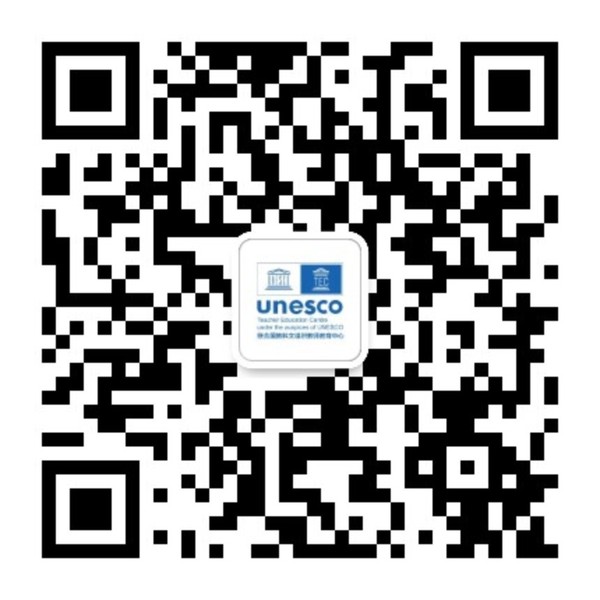November 23-24, 2024, the 22nd Annual Conference of the Comparative Education Branch of the Chinese Society of Education was held at Fujian Normal University. The conference, themed Global Civilization Initiative and the New Mission of Comparative Education, featured seven keynote reports, two roundtable forums, six parallel forums, and two graduate student forums. A total of 23 faculty and students from TEC (UNESCO Teacher Education Centre) participated, including Professor Zhang Minxuan, Professor Hu Guoyong, Professor Kong Lingshuai, Associate Professor Song Jia, Associate Professor Zhang Huafeng, Dr. Ding Ruoxi, Dr. Li Ruimiao, doctoral student Wang Chao, and master's student Qin Zhilian, among others.
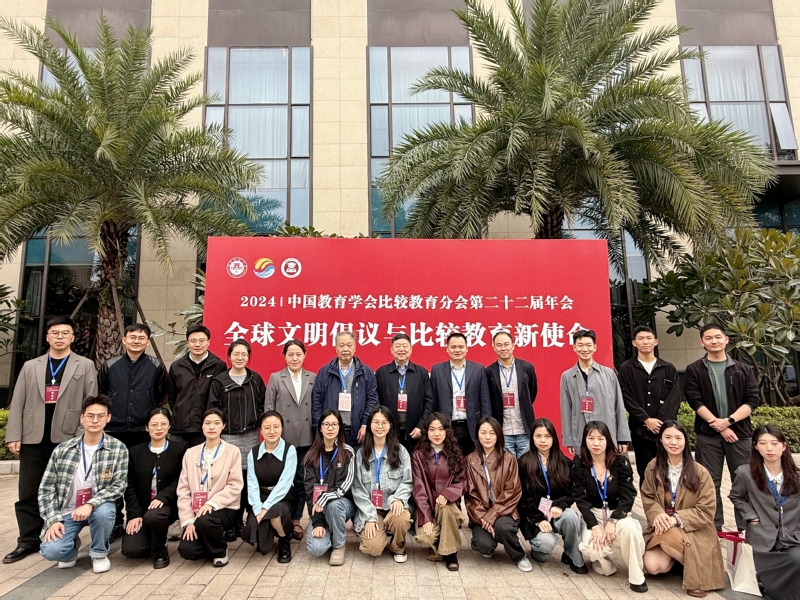
Faculty Presentations
On the morning of November 23, Professor Zhang Minxuan from TEC was invited to deliver the opening keynote report entitled Knowledge Dissemination: The Key to Telling Good Educational Stories. Through in-depth research on China's educational internationalization practices, he pointed out that the quality and connotation of knowledge transmission are central to effectively telling China's educational stories. Real cases and reliable data can effectively demonstrate the unique advantages and global value of China's education in local practices. Professor Zhang analyzed the dual role of knowledge transmission in international educational exchanges, noting that it is not only an important way to disseminate educational experiences but also reflects the cultural confidence and core values of Chinese education.
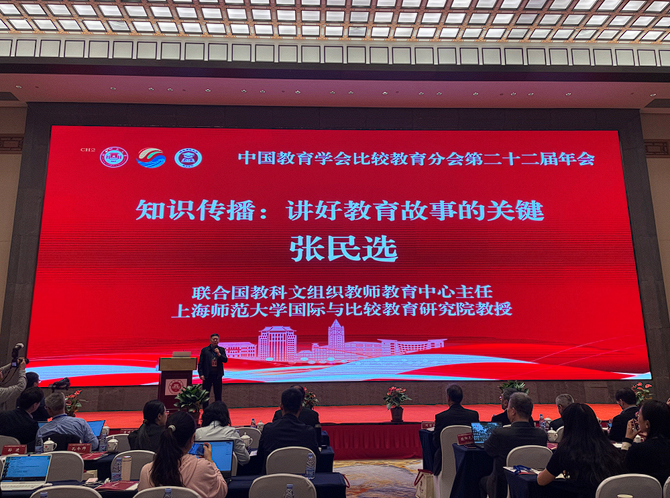
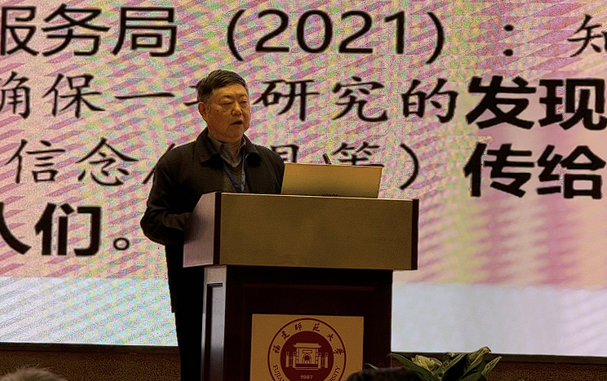

On the afternoon of the 23rd, Professor Hu Guoyong delivered a report entitled Comparative Education Research and the Construction of UNESCO Teacher Education Centre at a parallel session. He stated that China's comparative education research needs to shift from being primarily text-based to action (activity, practice)-based research. To achieve this shift, it is necessary to move from focusing more on educational experiences of developed countries to actively promoting Chinese education going global, strengthen critical interpretation of literature, and vigorously carry out empirical and action research. In the commentary session, Professor Hu analyzed the group reports from the perspectives of background knowledge, research shifts, and on-site engagement.
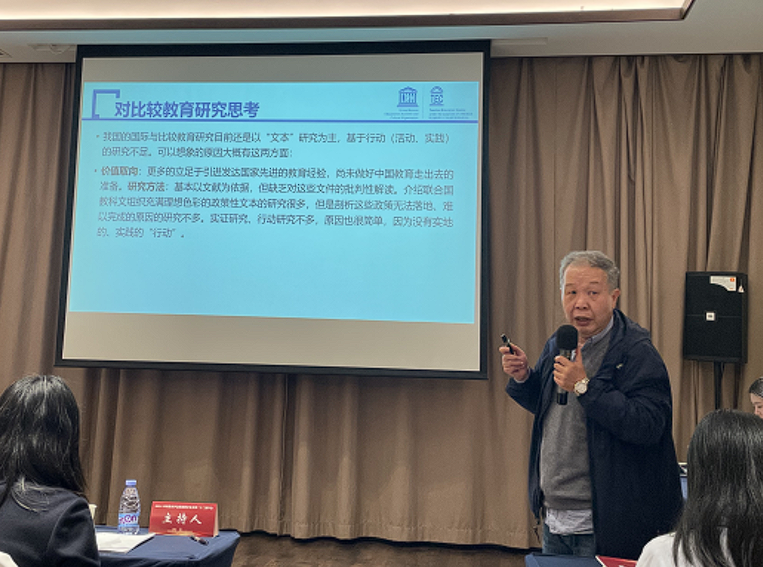
Professor Kong Lingshuai served as a commentator at a parallel session and delivered a speech entitled Action Paths and Value Orientation of EU Green Education from the Perspective of Social Action Theory, deconstructing the action system of EU green education from four aspects: action subjects, action goals, action contexts, and action norms. In the commentary session, he noted that the presenters had conducted extensive and in-depth research on global ecological civilization and education for sustainable development, and put forward suggestions on enhancing the problem awareness and academic rigor of the research.
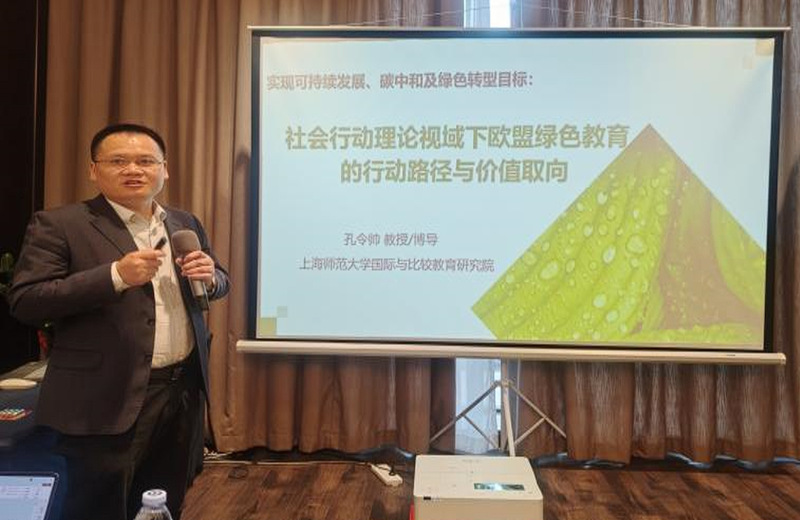
Associate Professor Song Jia chaired and spoke at the sub-forum Global Civilization Initiative and High-Level Opening-Up. Focusing on Institutional Innovation and Policy Prospects of Higher Education Opening-Up in Major Countries Worldwide, she analyzed the experiences, common laws, and individual measures of countries such as the UK, the US, and Australia in promoting high-level opening-up of higher education in recent years. Combining the practical challenges of institutional opening-up of China's higher education, she explored possible paths for transforming from factor-based opening-up to institutional opening-up.
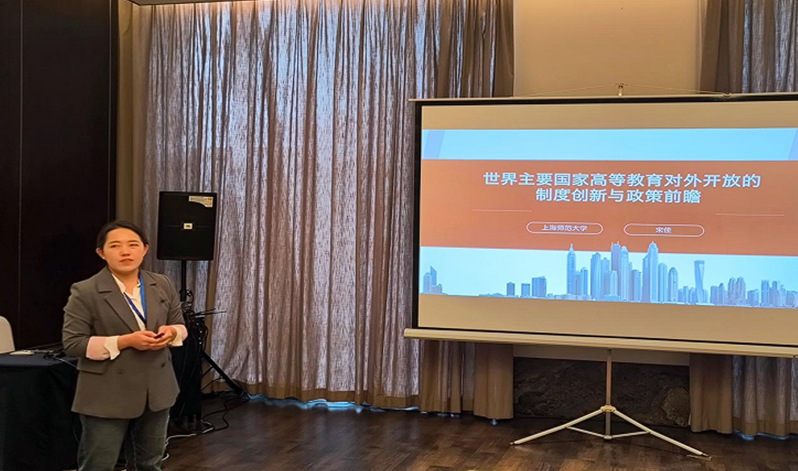
Associate Professor Zhang Huafeng chaired the sub-forum Global Civilization Initiative and International Educational Aid. He also delivered a report entitled How to Conduct Educational Aid – Analysis and Reflections on the US Peace Corps Program, which, drawing on international development theory and public diplomacy theory, analyzed the motivations, implementation methods, effectiveness, and shortcomings of the US Peace Corps program.
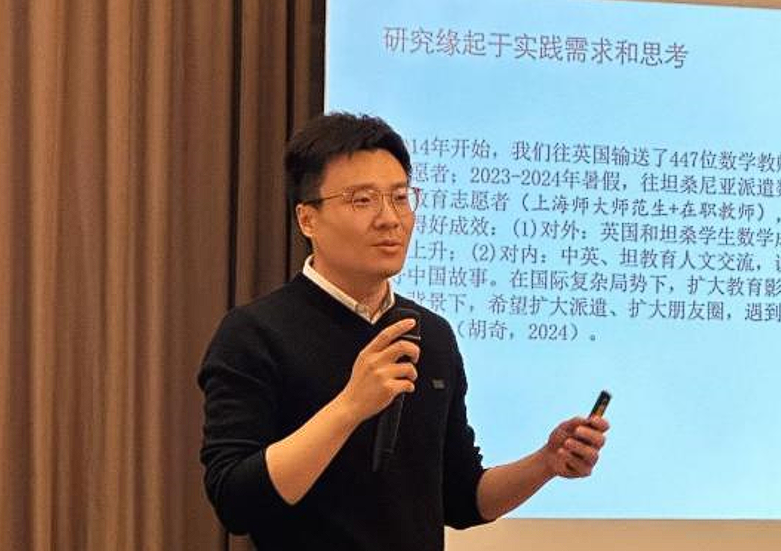
Dr. Ding Ruoxi delivered a report entitled Disseminating China's Educational Development Experience to the 'Global South' at the sub-forum Global Civilization Initiative and Internationalization of Higher Education. Within the framework of development communication and using cultural practice analysis, she classified knowledge audiences based on cultural and professional tendencies, and explored the selective acceptance of Chinese teacher education knowledge content and dissemination methods by different audiences.
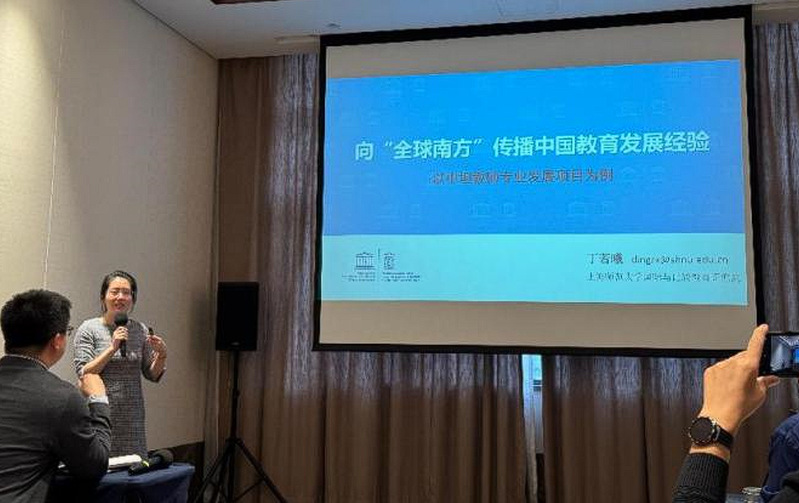
Student Presentations
Doctoral student Wang Chao served as a commentator at the graduate student forum and delivered a speech entitled Ecological Turn of UNESCO's Education for Sustainable Development in the Anthropocene Era. He introduced and analyzed the challenges, paths, and prospects of UNESCO's promotion of education for sustainable development in the Anthropocene era, and shared his learning experiences in the commentary session.
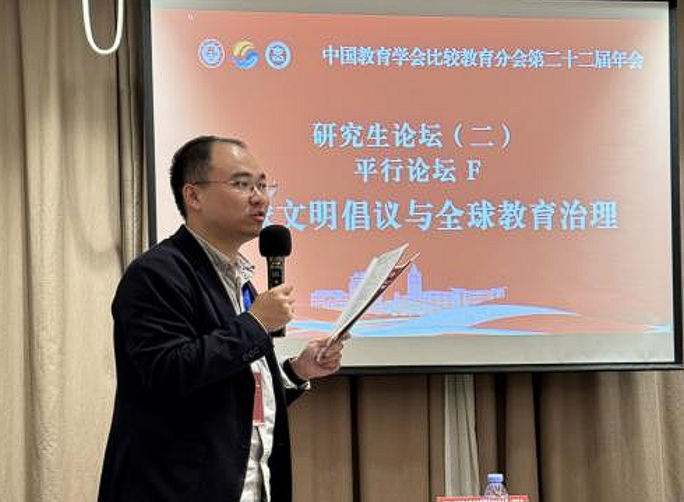
Doctoral student Xing Mengxiao chaired the graduate student forum and delivered a speech entitled Practical Exploration of Curriculum Systems for Cultivating Top Innovative Talents in US Public Elite High Schools. He analyzed the research objects, analytical framework, and practical strategies and characteristics of curriculum systems in 10 US public elite high schools, and explored talent cultivation models.
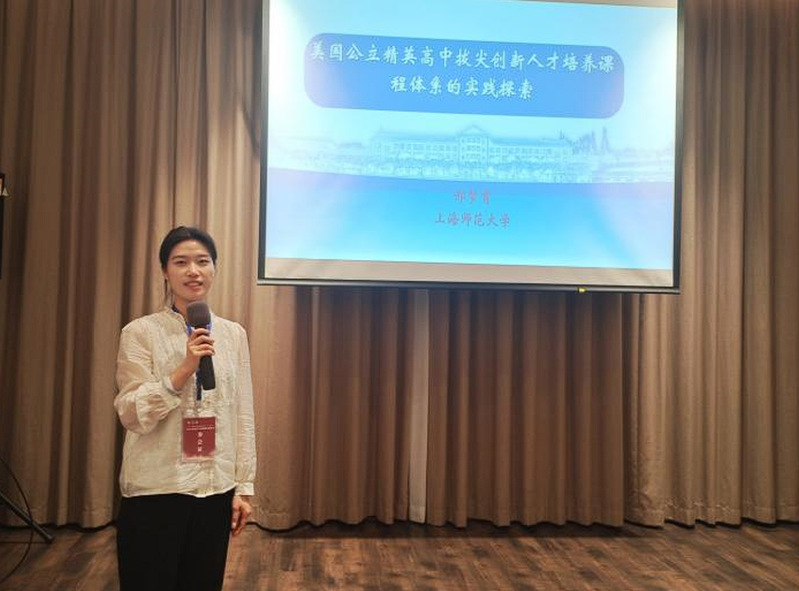
Doctoral student Hu Qi delivered a report entitled Research on Cultivation Strategies of International Educational Volunteers under the Belt and Road Initiative at the sub-forum Global Civilization Initiative and the Construction of the Belt and Road Education Community. Based on the context of three major global initiatives, he systematically analyzed the current situation and challenges of international educational volunteers and put forward targeted suggestions for mechanism optimization.
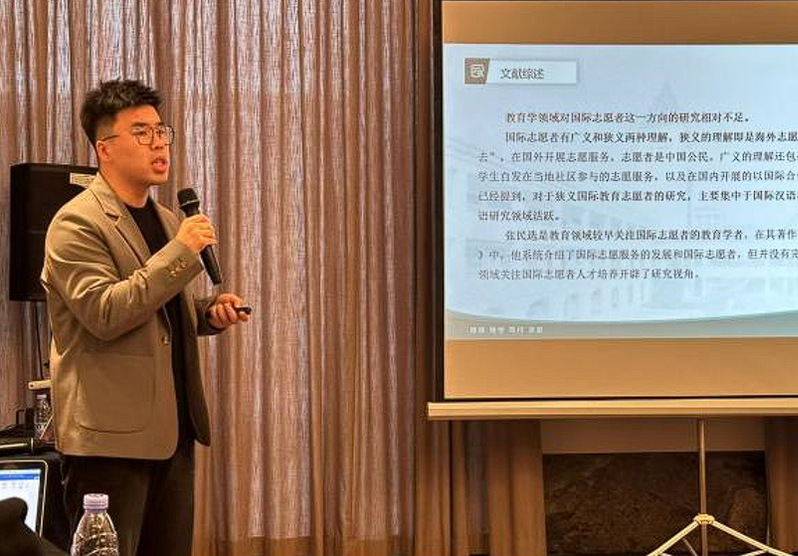
Doctoral student Yu Ying delivered a report entitled Concerns and Regulatory Paths of AI Education Applications in the UK at a parallel forum. Based on the IRGC risk framework, using grounded theory and institutional grammar tools as research methods, she analyzed the regulatory model of AI integration into education in the UK from three aspects: ethical concerns, potential opportunities, and regulatory paths.
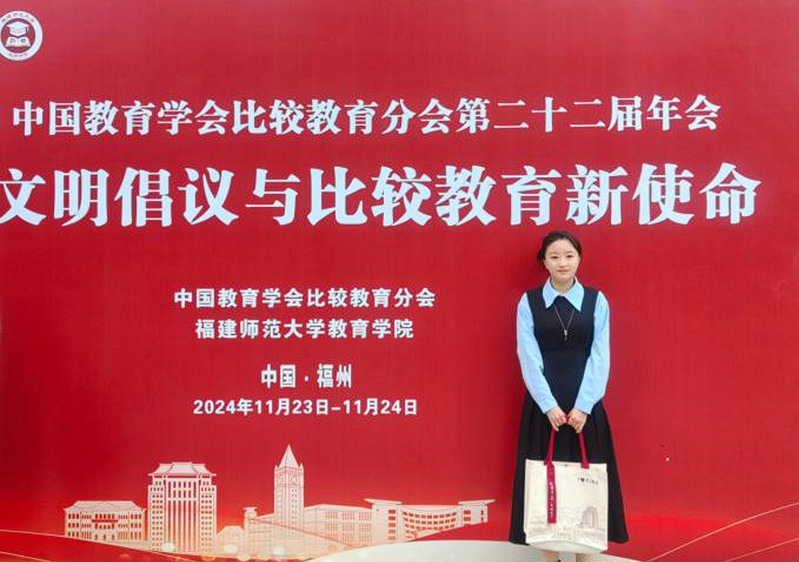
Doctoral student Hou Jia delivered a report entitled Construction of a School-Running Community for Vocational Schools Collaborating with Enterprises to 'Go Global' under the Belt and Road Initiative at a sub-forum. Based on symbiosis theory, she analyzed the dilemmas of vocational schools collaborating with enterprises to go global in terms of symbiotic units, symbiotic models, and symbiotic environments, and proposed specific improvement strategies. Additionally, as a commentator at the sub-forum Global Civilization Initiative and the Belt and Road Education Community, Hou Jia responded to each speech in the group.
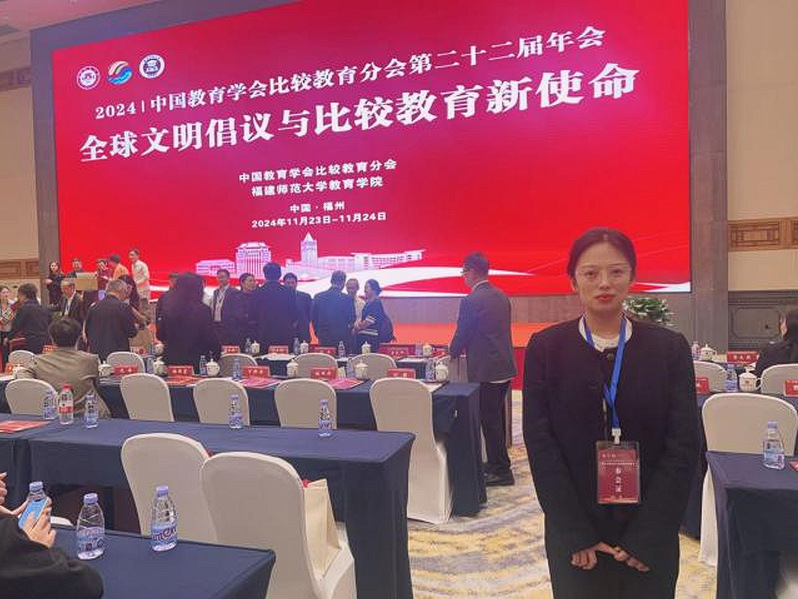
Doctoral student Yan Yingying delivered a report entitled AI Empowering K-12 Students' Computational Thinking Development – A Study on Policies and Practices in the US at Parallel Forum B. She sorted out the policy background of introducing AI in K-12 education in the US and explored the path design and implementation effects of relevant policies and practices in promoting AI to enhance students' computational thinking through specific cases.
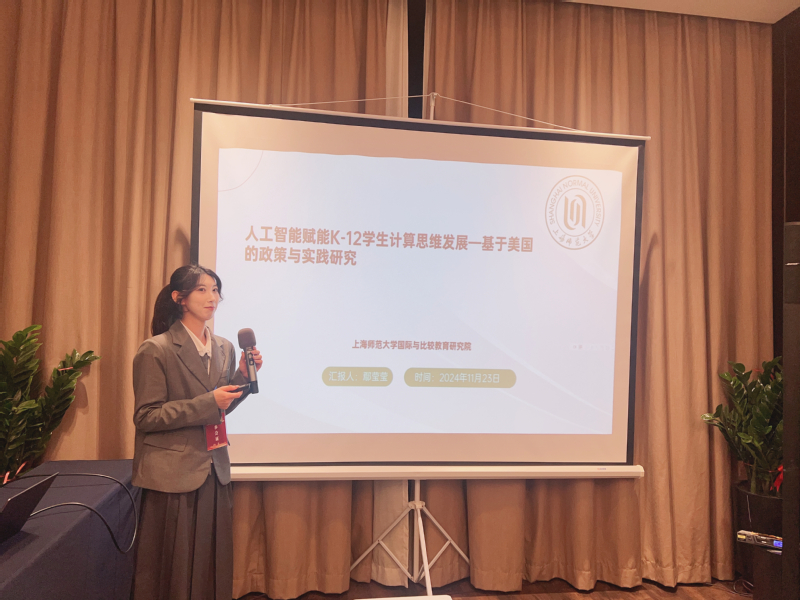
Master's student Lin Wanting delivered a report entitled Practice and Enlightenment of Interdisciplinary Talent Cultivation in Top French Universities – A Case Study of École Polytechnique at the graduate student parallel forum. She sorted out the policy background of developing interdisciplinary disciplines in France, conducted a micro-analysis of interdisciplinary talent cultivation in France with École Polytechnique as a case, and put forward suggestions for China's interdisciplinary talent cultivation practice.
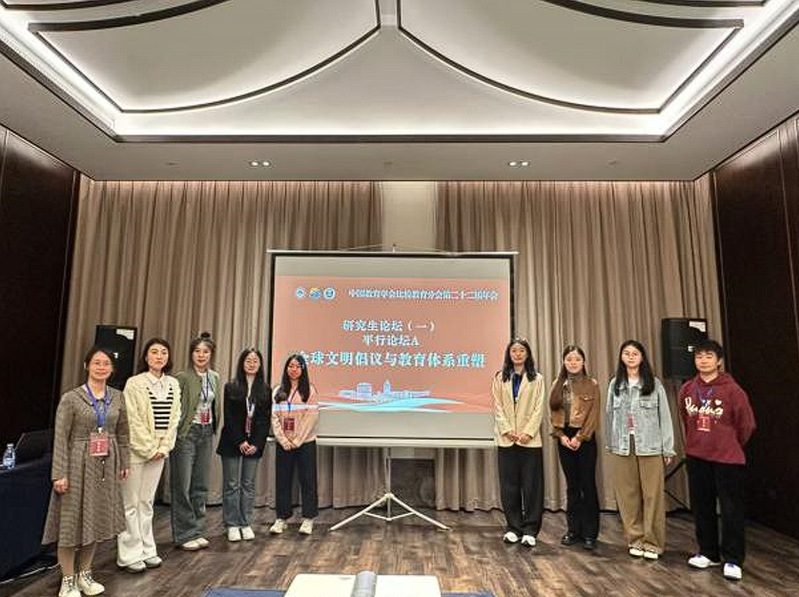
Master's student Lu Xinqi delivered a speech entitled Breaking the Shackles of Women's Participation in STEM: The World Bank's Concepts and Responses at the graduate student parallel forum. STEM has been recognized by the international community as an important way to enhance national innovation capabilities and international competitiveness, but there are still obstacles to women's participation in STEM education and employment. The World Bank has long regarded gender equality as one of its strategic priorities in education assistance, and from concepts to responses, it has been breaking the shackles of women's participation in STEM education and employment, providing references for accelerating the achievement of gender equality and sustainable development goals.
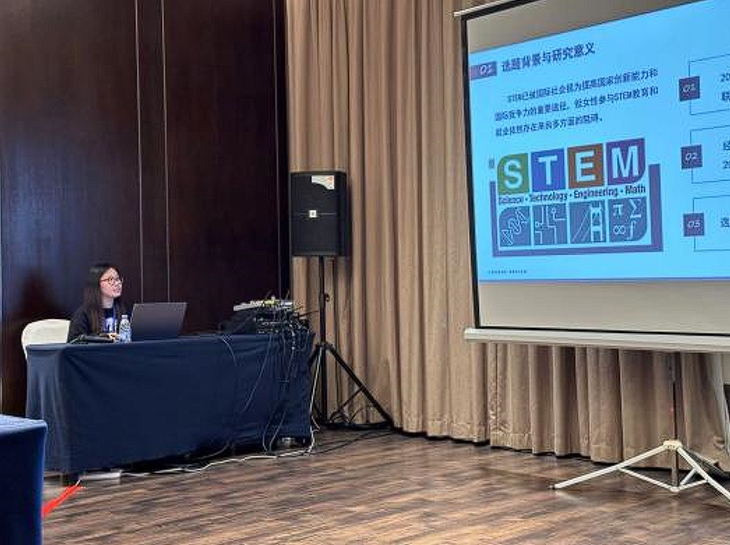
Master's student Shu Meihao delivered a speech entitled Holistic Governance Mechanism and Action Reflections of US International Basic Education Aid at the graduate student parallel forum. Based on the theory of holistic governance, he analyzed the development stages of holistic reform in US international basic education aid, deconstructed the holistic governance mechanism of US international basic education aid from four aspects: coordination, integration, responsibility, and information, and reflected on the effectiveness and challenges of US international basic education aid.
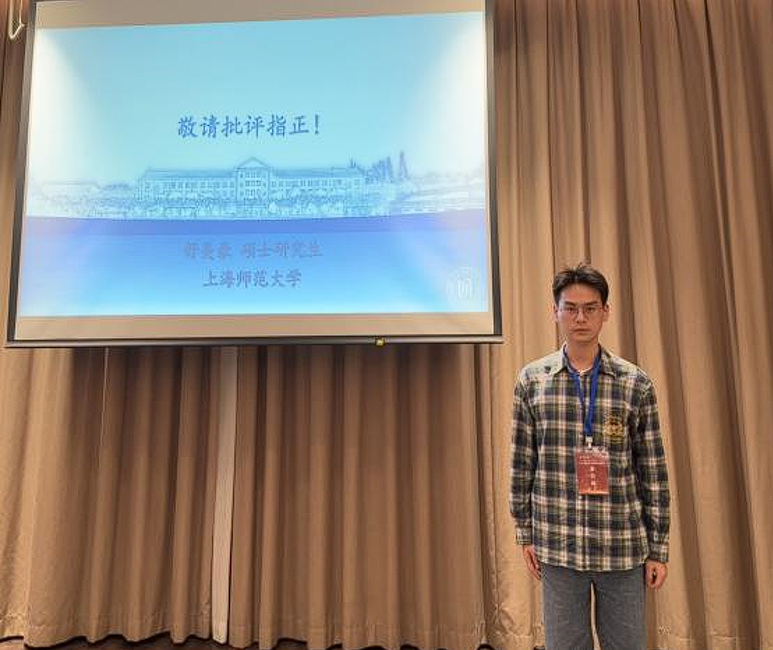
Master's student Qin Zhilian delivered a report entitled Why is French Mathematics Education World-Renowned? at the graduate student parallel forum. The report deeply explored the cultural heritage of French mathematics, systematically analyzed the uniqueness of its situational teaching in basic education and elite system in higher education, and further clarified the research direction through exchanges and discussions.
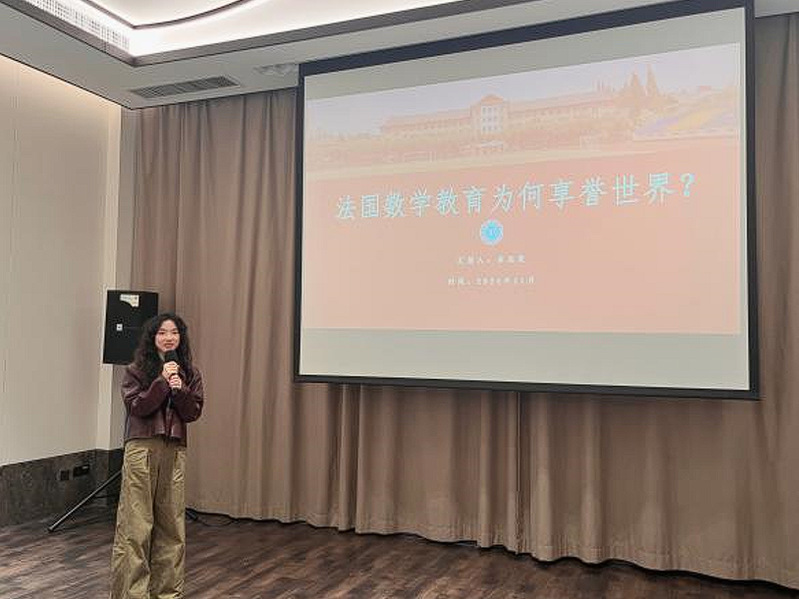
Master's student Feng Yuan delivered a speech on Experience in Reducing Teachers' Burden in the UK at the graduate student parallel forum. Covering research background, policy sorting and analysis, effectiveness and controversies, and enlightenment, he analyzed the historical context of policies and summarized policy characteristics from three dimensions: goals, content, and methods.
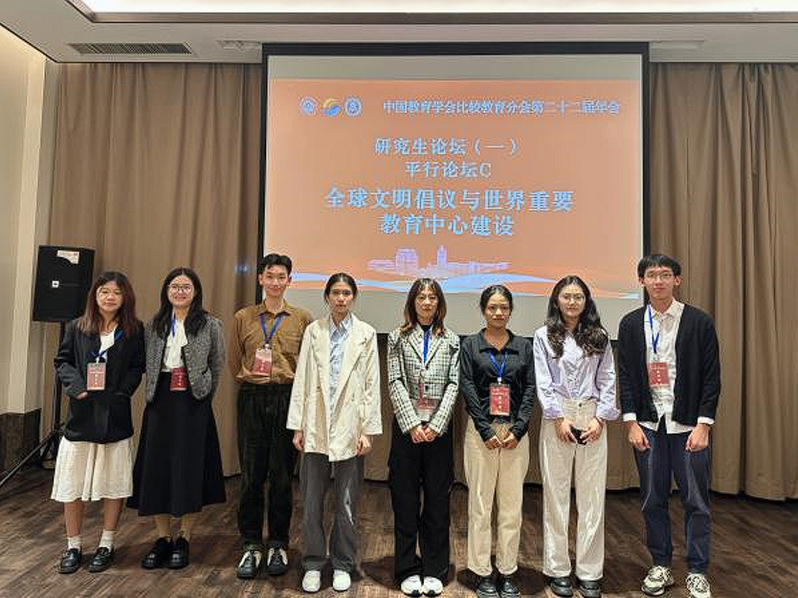
Master's student Ling Hui delivered a keynote report on Research on the Internationalization Strategy of STEM Education in German Universities at the graduate student parallel forum. Exploring the characteristics of the internationalization strategy of STEM in German universities and its enlightenment for the development of STEM education in Chinese universities from three parts: strategic background, implementation paths, and enlightenment and reflections.
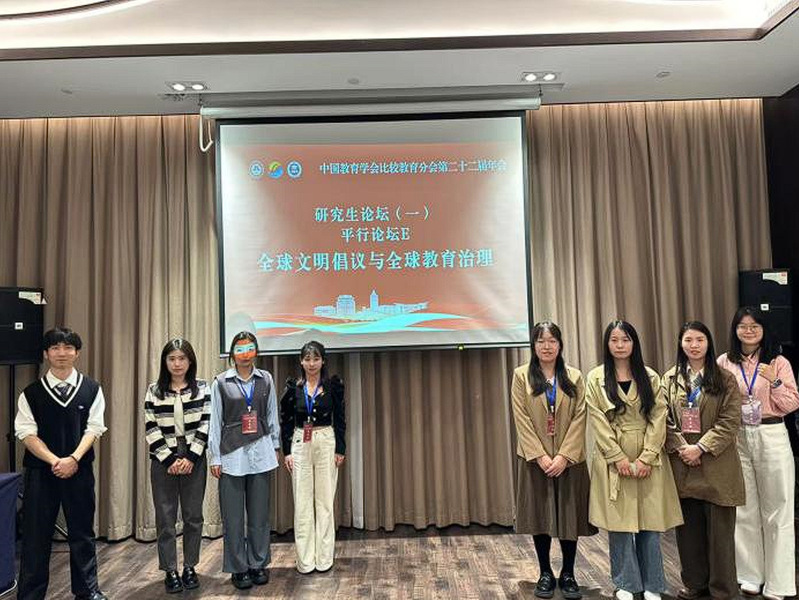
Master's student Liu Zijing shared insights on UNESCO's newly launched Green Education Partnership Programme in 2022 at the graduate student parallel forum. He introduced the programme's path vision centered on its four pillars and analyzed the future direction of this initiative at the policy, economic, and social levels.
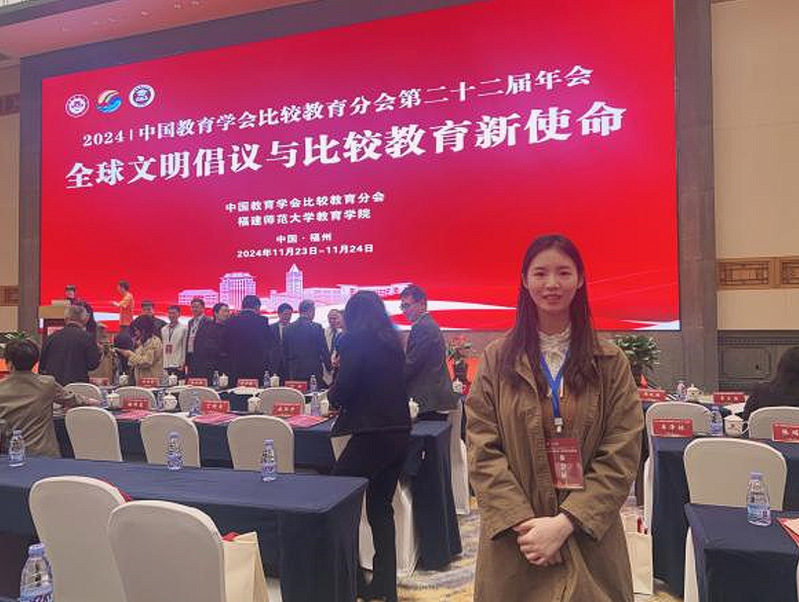
Master's student Wu Mengying delivered a report entitled Cultivation of International Organization Talents in the Netherlands from the Perspective of Global Competence – A Case Study of International Law Programs at a sub-forum. From the perspective of the global competence framework, she examined the experiences, characteristics, and advantages of talent cultivation for international organizations in Dutch universities from three aspects: positioning of international law talent cultivation, professional and curriculum setting models, and social practice systems.
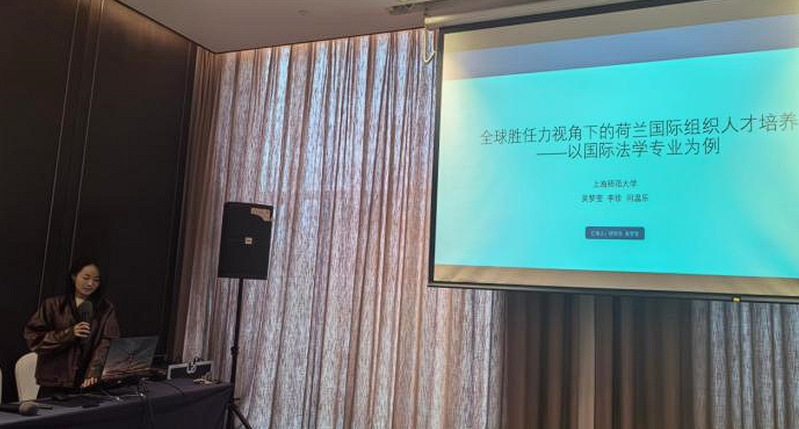
Master's student Shen Huayu shared research on Promoting Win-Win Regional Cooperation – A Study on Primary School Learning Indicators in Southeast Asia Based on Stakeholder Theory. Exploring the reference significance of this programme for ASEAN, China-ASEAN cooperation, and global regional cooperation from four parts: research background, coupling of stakeholder theory, stakeholder demands, and dilemmas.
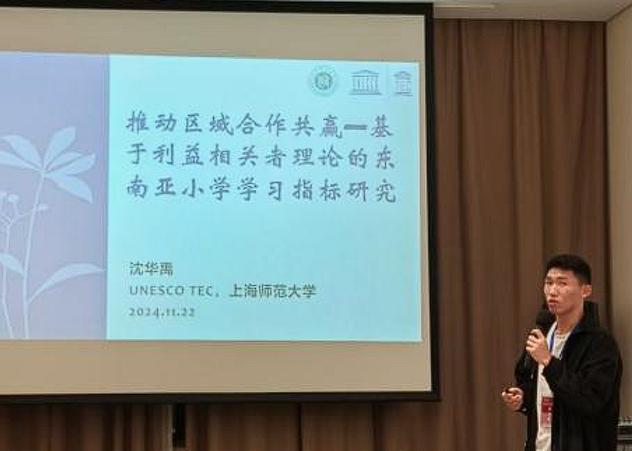
With the theme Global Civilization Initiative and the New Mission of Comparative Education, the conference saw comparative education scholars share their research results in their respective fields, explore the paradigm shift of comparative education research in the new era, and promote the implementation of the Global Civilization Initiative.





